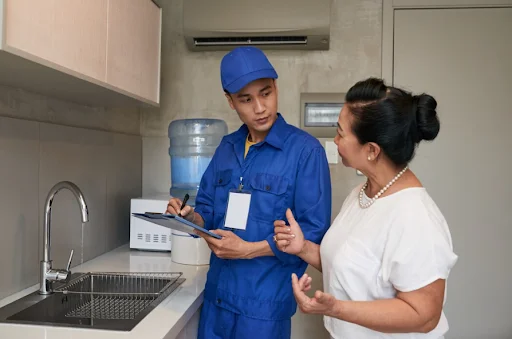“Make your wallet smile with our comprehensive guide on effective strategies to drastically reduce your water bill! #WaterBillSavings”
Water conservation safeguards the planet’s resources and contributes to long-term environmental stability. It helps maintain clean drinking water, supports wildlife habitats, and minimises pollution in rivers and seas. Every drop saved also lessens the strain on treatment plants and energy systems, leading to a healthier, more balanced environment for communities and future generations.
Reducing household water use not only benefits the environment but also has a direct impact on financial well-being. Homeowners often look for practical ways on how to reduce water bill while promoting sustainability. Households that manage consumption efficiently often see noticeable savings each billing cycle. From simple habit changes to technology-driven methods, adopting smarter water practices contributes to both sustainability and household budgeting.
Understanding Household Water Usage
The amount of water used by a household depends on several factors, including family size, daily routines, and the efficiency of plumbing fixtures and appliances. A family that regularly washes laundry, cleans dishes, and showers multiple times a day naturally consumes more water than a smaller household with water-saving devices or Reduce your water bill.
Understanding where and how water is used forms the foundation for effective management. When families track consumption through regular meter readings or monitoring tools, they gain valuable insights into patterns and can identify potential areas for reduction. Even minor adjustments, such as shorter showers or using full loads in dishwashers and washing machines, can lead to significant savings over time.
Don’t miss a beat—related posts that expand your understanding effortlessly.
Reducing Water Use Indoors
Indoor water conservation often begins with maintenance. Leaking taps, pipes, and toilet tanks waste litres of water daily. Prompt repairs can prevent unnecessary loss and keep bills manageable. Replacing outdated fixtures with modern low-flow taps and dual-flush toilets also reduces overall consumption without compromising comfort or convenience.
Behavioural changes have an equally strong impact. Turning off the tap while brushing teeth, collecting cold water from showers before it heats up for reuse, and using water-efficient dishwashers all contribute to noticeable reductions. Many modern appliances are designed with conservation in mind, offering advanced features that maintain performance with minimal water use.
Kitchen habits can also make a difference. Instead of running water continuously when washing produce or dishes, use a basin to rinse. Collecting leftover cooking water for plants adds another small but effective measure of conservation. When combined, these mindful actions create measurable progress in reducing overall usage.
Managing Outdoor Water Consumption
Outdoor areas can consume large amounts of water through gardening, landscaping, and recreational use. Installing drip irrigation systems helps deliver water directly to plant roots, limiting evaporation and runoff. Choosing drought-tolerant plants reduces the need for constant watering, allowing gardens to thrive even in dry conditions.
Rainwater harvesting provides a reliable supplementary source. By collecting rain from rooftops and directing it into barrels or storage tanks, households can access water for gardening, cleaning, or other non-potable uses. This method decreases reliance on public supply systems and offers an environmentally responsible solution to water management.
Swimming pools can also be maintained in a water-conscious manner. Using covers when not in use, regularly inspecting for leaks, and maintaining a proper chemical balance reduce both water loss and maintenance costs. Efficient filtration systems prevent unnecessary refilling and keep the water clean for longer periods.
Integrating Technology for Smarter Water Management
Modern technology has introduced innovative ways to monitor and control water consumption. Smart sensors can detect leaks in plumbing systems before they escalate into costly repairs. Automated irrigation systems adjust watering schedules based on soil moisture levels and weather forecasts, preventing overuse.
Smart meters provide real-time data about household water use. This allows consumers to identify unusual spikes that may indicate leaks or excessive usage, leading to quicker corrective action. Over time, this data supports better planning and encourages more responsible consumption patterns.
Applications connected to these systems make tracking simple and accessible. They offer detailed reports, usage alerts, and personalised recommendations, helping households maintain consistent conservation habits. This combination of awareness and technology empowers users to achieve lasting savings and sustainability.
Long-Term Impact and Practical Benefits
Sustained water-saving practices benefit both households and the wider community. Reduced demand lowers the strain on public utilities, which can stabilise costs and delay the need for costly infrastructure expansions. On a personal level, the cumulative effect of efficient habits translates into meaningful financial relief and a sense of contribution to environmental responsibility.
Encouraging family members to participate in conservation builds shared accountability. Teaching children to value water through simple actions, such as turning off taps or using collected rainwater, fosters lifelong habits that influence future generations.

Conclusion
Effective water management begins with awareness and grows through consistent, mindful actions. Every repair, upgrade, or behavioural change contributes to reduced consumption and long-term savings. By adopting thoughtful practices and integrating modern technology, households can significantly lower their water bills while promoting sustainability. Small changes, when sustained, can reshape how communities value and preserve this most indispensable resource.
Curiosity calls—explore more content that sparks ideas and surprises at every turn.







